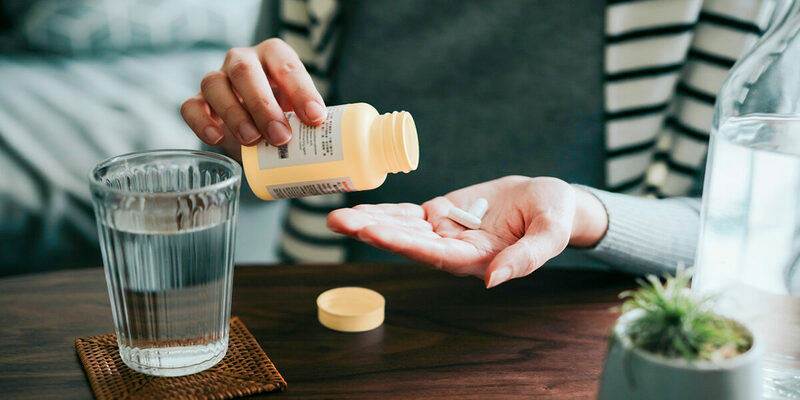
You may have considered taking a zinc supplement after learning about zinc's reputation for bolstering the immune system. TheThe National Institutes of Wellness (NIH) stresses the need to obtain zinc from dietary sources rather than bottled supplements. What you need to know about zinc supplements, the best nutritional bases, and a few additional ways zinc may assist you.
Benefits Of Zinc For Health
Zinc is essential for the action of more than 300 enzymes that help in a wide variety of crucial elements of your health, including proper digestion, neurological function, including metabolism, as stated by the National Institutes of Health (NIH). Protecting your brain's health is another reason to consume zinc. According to a study published by an Article In the Journal of Molecular Sciences, variations in zinc balance throughout the brain may influence illnesses such as maturity level cognitive decline, depression, and especially Alzheimer's disease. Zinc also plays an integral part in wound healing. Repair of cell membranes, cell proliferation, and skin health all rely on zinc. Zinc-dependent polypeptides provide essential cellular functions, including DNA repair. Following a study published in the scientific journal Nutrients in 2018, a lack of zinc might hinder the body's ability to repair wounds and cause other skin issues.
What Exactly Is Zinc?
As a vital vitamin, your body cannot generate or retain zinc. Therefore, ensuring you're getting enough of it in your diet is crucial. Multiple physiological functions rely on zinc, and here are just a few of them (Reliable Source):
- Expression of Genes
- The work of enzymes
- Vaccine effectiveness
- Forming of proteins
- Creation of new DNA
- Healing a wound
- Alteration and progress
Zinc May Be Present In Many Different Kinds Of Plant And Animal Diets
Breakfast cereals, chocolate bars, and baking flour typically don't contain zinc naturally and are commonly fortified with synthetic versions of the mineral. It's also possible to get zinc via multivitamins or zinc-specific supplements. Zinc is used in specific over-the-counter cold remedies, including nasal sprays but instead tablets because of its involvement in immune function. Humans need external sources of the mineral zinc since it is essential. It is aided by multiplication, DNA synthesis, immune system function, and even more.
Zinc In The Diet

There is no shortage of zinc in either animal or plant-based meals. The National Institutes of Health lists oysters as the best animal source, followed by beef, crab, lobster, pig, and yogurt. Zinc may be found in cereals and other plant-based meals fortified with zinc, as well as in foods including vegetarian baked beans, sesame seeds, cashews, pumpkin seeds, chickpeas, lentils, quinoa, and oats. Following the National Institutes of Health, getting your daily allotment is as simple as eating a healthy, well-rounded meal. Zinc RDAs consist of the following:
- Men 14 and up 11 milligrams (mg) daily; women 19 as well as up 8 mg daily; women 14-18: 9 mg daily
- Pregnant women should take 11 mg daily, and nursing mothers should take 12 mg daily.
- For kids 9-13 years old, the recommended daily dosage is 8 mg.
- Children 4-8 years old should take 5 mg daily.
- Children 7 months and older should take 3 mg daily, while infants 6 months and younger should take 2 mg.
- There are 5.3 milligrams in a three-ounce beef burger. There is 5.8 mg in one serving of vegetarian baked beans.
Role In Your Body
The benefits of zinc, an essential element, are many. Every single cell in your body contains zinc, making it the second most prevalent trace mineral throughout your body behind iron. Approximately 300 enzymes responsible for metabolism, digestion, nerve function, and other activities need zinc to operate appropriately. Furthermore, immune cells must mature and perform properly. Skin health, DNA synthesis, and protein formation may all benefit significantly from this mineral. Also, zinc is essential for development and growth due to its cell division function. The senses of taste and aroma also need zinc.
Zinc Deficiency

Zinc supplementation is not advised without medical supervisioZinc supplementation is not advised without medical supervision, as stated by the National Institutes of Health. The National Institutes of Health lists sickle cell anemia, gastrointestinal disorders, and a history of having bariatric surgery as potential causes of zinc deficiency. The FDA also warns that a diet high in legumes and whole grains may increase risk because these foods contain substances that prevent the body from absorbing zinc. Your doctor may inquire about your zinc status or prescribe tests if they suspect a deficit if you are at risk.
Conclusion
Zinc seems to be a mineral that serves several crucial functions in the human body. Maintaining healthy hair, skin, nails, and eyes is also aided by this nutrient. Many foods contain zinc, including meat, seafood, legumes, nuts, seeds, and even whole grains. Some supplements may be necessary to ensure enough consumption if dietary efforts seem insufficient.



